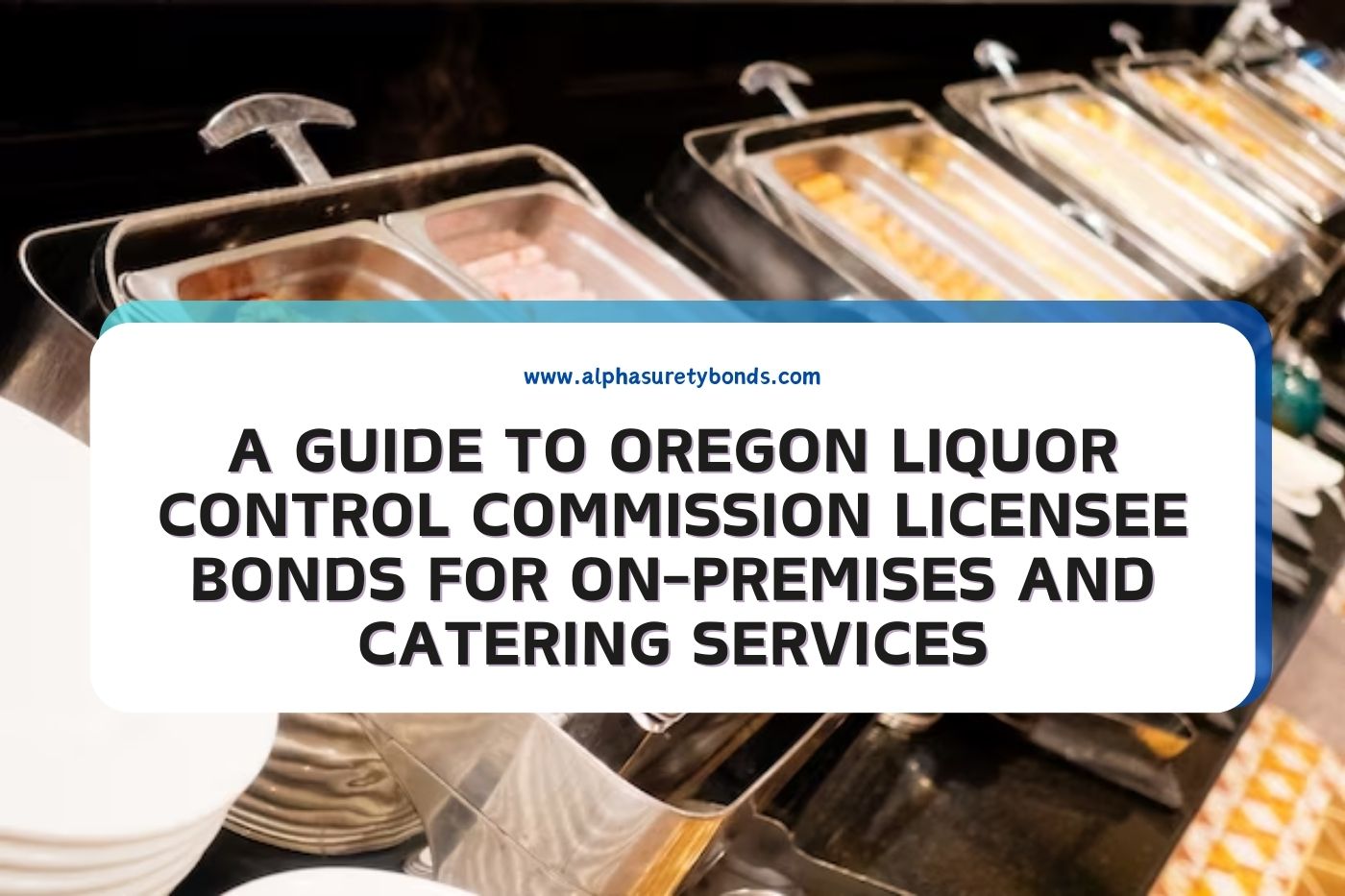Get An Instant Quote on Oregon Liquor Control Commission Licensee Bonds for On-Premises and Catering Services
Oregon Liquor Control Commission (OLCC) Licensee Bond: Definition and Purpose
Explanation of what an OLCC Licensee Bond is
An Oregon Liquor Control Commission (OLCC) licensee bond, commonly known as a liquor bond, serves as a form of insurance for the state. It ensures that licensees abide by all laws and regulations governing the sale, production, and distribution of alcoholic beverages within the jurisdiction.
Purpose of the OLCC Licensee Bond
The primary purpose is to protect consumers and state interests. If there’s any violation on the part of the licensee – such as not paying taxes or other financial obligations related to their business operations – this surety bond would cover those costs.
Types of OLCC Licensee Bonds
Full On-Premises Licensee Bond
A Full On-Premises licensee bond applies to businesses that serve alcohol for consumption within their premises like restaurants, bars or clubs.
Caterer Licensee Bond
A Caterer licensee bond pertains specifically to catering companies who provide food & beverage services at various locations for different events which includes serving alcohol.
Requirements for Obtaining an OLCC Licensee Bond
For both types:
- Submitting a completed application form with accurate details.
- Paying applicable fees.
- Undergoing background checks if required.
- Providing proof of appropriate liability insurance coverage.
Application process for Full On-Premises
In addition to the general requirements mentioned above, they also need floor plan approvals from relevant authorities showing designated areas where alcohol will be served.
The application process for Caterer
Caterers must provide similar documents along with a list of potential venues where they might operate making it more complex than full premises licenses due to multiple location aspects.
Cost Factors
These are influenced by several factors:
- The type & size of business operation,
- Previous legal violations if any,
- Credit score applicant etc.,
Both, Full On-Premises & Caterer bonds’ costs are largely influenced by the same factors but caterers could face higher costs due to additional risks associated with the mobility of their operation.
Consequences
Failure to obtain or maintain these bonds can lead to severe penalties including:
Legal Implications for Full On-Premises Establishments
Suspension/revocation of license, monetary fines, and potential legal proceedings.
Legal implications for Catering businesses
Similar consequences as full on-premises but they may also face damages claims if alcohol-related issues arise during events.
Maintaining Compliance
Licensees must regularly update their bond status ensuring that it remains valid throughout the license term.
Both categories have similar requirements – regular renewals at specific intervals (usually annually), periodic reviews & updates in response to changes in business circumstances like expansion, etc.
Surety Companies’ role is crucial here as they provide necessary guarantees between the licensee & OLCC enforcing compliance terms. Hence choosing a reliable one is essential which will be further discussed later section.
Common Misconceptions
Clear understanding is important to avoid unnecessary hassles,
Full On-Premises Licensee Bond
They do not substitute liability insurance but rather complement each other covering different aspects of potential risk.
Caterer Licensee Bond
They don’t cover all liabilities especially those arising from food-related issues hence comprehensive coverage is recommended.
Case Studies showcasing good compliance practices help clarify practical applications of this concept and what happens when there are violations leading to non-compliance.
FAQs
What are OLCC Licensee Bonds?
They form insurance guaranteeing adherence to rules set forth Oregon Liquor Control Commission pertaining sale, production distribution of alcoholic beverages within state boundaries.
How much does it cost?
Cost varies based on size and type of operation along with the applicant’s credit score history and any past legal violations related to alcohol sales.
Conclusion
Securing an Oregon Liquor Control Commission (OLCC) Licensee Bond is crucial for businesses serving alcohol either on-premises or through catering services. This bond ensures compliance with state regulations, protecting both consumers and the state by covering costs arising from any licensee violations. Whether operating a restaurant, bar, or catering service, adherence to OLCC requirements through this bond safeguards business operations and maintains industry standards. Regular renewal and adherence to changing regulations are essential for continuous operation and avoiding legal repercussions. Understanding and fulfilling these bond requirements signifies a commitment to responsible business practices in Oregon’s alcohol industry.





